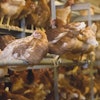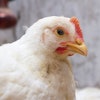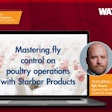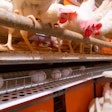
In a WATT Poultry Chat interview, Dr. Stéphane Lemiere, global technical director, avian, with Boehringer Ingelheim, looks at how HVT vaccines have changed vaccination strategies and what poultry producers should consider when choosing a vaccine.
Mark Clements: Hello and welcome to WATT Poultry Chat. My name is Mark Clements. I'm the editor of Poultry International, and today we're joined by Stéphane Lemiere, global technical director, Avian, with Boehringer Ingelheim, to talk about HVT vector vaccines.
Boehringer Ingelheim believes that prevention is better than cure and therefore focuses on developing innovative solutions in the areas of vaccines. With a rich product line of advanced preventive health products, tools and services, the company helps its clients in caring for the health of their animals.
MC: Hello Stéphane, thanks for joining us. Now perhaps to start with, could you tell us why HVT vector vaccines have been a game-changer for the poultry industry?
SL: Hello Mark. So first, let me remind everyone what is a HVT vector vaccine. HVT stands for Herpes Virus of Turkey and has been indeed a game-changer for the industry since 2006 when Boehringer Ingelheim launched the first HVT vector vaccine. Thanks to the usage of a turkey virus as a platform, those HVT vector vaccines in poultry are not affected by maternal antibodies, that's quite important. And they can protect more quickly against the major diseases like infectious bursal disease, that is usually used as an acronym, IBD, but also Newcastle disease, acronym ND, and ILT, infectious laryngotracheitis.
MC: So over the last 10 years, we have seen a major shift from farm vaccination to hatchery vaccination. And part of the explanation for that is the availability of vector vaccines, but can you give more details on why such a shift?
SL: First, the switch from farm to hatchery vaccination is indeed a major trend that I think will continue. When vaccinating at the hatchery the poultry producers have more control on the biosecurity and the quality of the vaccine administration. In addition, with more and more pressure from labor shortage or controlling the costs, hatchery vaccination can be done with more automation through in ovo, semi-automatic sub cutaneous injection or spray, which makes the process much easier for our customers.
MC: Thanks Stéphane, so you have mentioned that poultry producers are now increasingly using HVT vector vaccines, but could you share with us what they should consider when when choosing an HBT vector vaccine?
SL: Mark, you are touching an interesting point here. First, let me remind everyone that poultry producers should never use two HVT vector vaccines at the same time, since we will observe a negative interaction between both vaccines. To compensate this major drawback, differences vaccine protecting against IBD and Newcastle disease or laryngotracheitis is well developed. When considering a HVT vector vaccine, I advise the poultry producers to always start by identifying the main diseases they need to protect against. Then, they should consider the most efficient HVT vector vaccine against those diseases in terms of efficacy, onset of immunity and duration of immunity. That’s why Boehringer Ingelheim company has capitalized on all the benefits of the well known HVT vector vaccine platform and on its immune foundation. In addition, we have designed our double insert construct with a single promoter to initiate simultaneously the replication of the IBD and of the Newcastle disease or infectious laryngotracheitis and its genes. With this specific design we are certain that we didn’t change the HVT in vivo replication capabilities. Overall protection against Marek's, IBD, Newcastle or ILT are maximized.
MC: Stéphane, thank you, and thank you so much for joining us today. For more information about Boehringer Ingelheim and its work on Newcastle disease, visit www.bi-vetmedica.com. Thank you, goodbye.

















